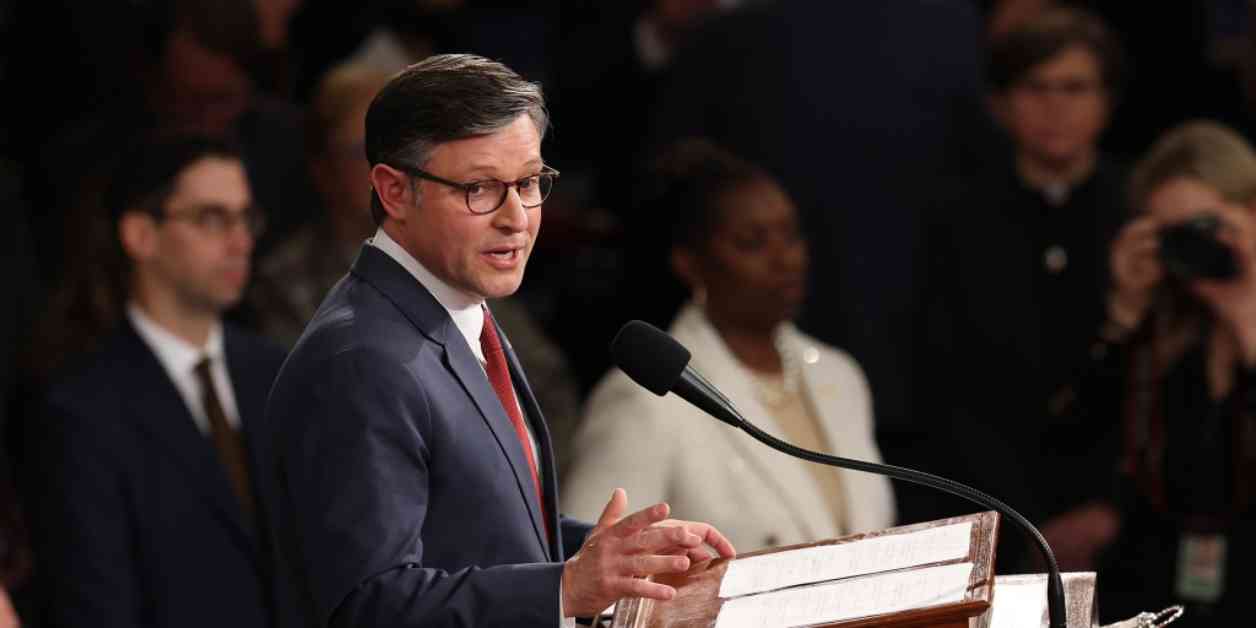Mike Johnson’s Triumph and Tribulations in Re-Election as House Speaker
In a stunning turn of events, Mike Johnson, the House speaker, narrowly secured his re-election on the first day of the 119th Congress, overcoming a small rebellion within his own party. The Louisiana Republican faced initial resistance from a group of conservative rebels who defied President-elect Donald Trump’s support for Johnson. The rebels’ actions threatened to disrupt the House’s proceedings, with nine Republicans openly hesitating during the speaker’s vote. This group’s significance lies in the fact that the GOP’s new rules package will now require nine lawmakers to initiate a “motion to vacate” the speaker’s chair, up from just one.
With Rep. Thomas Massie casting his vote for Majority Whip Tom Emmer, Rep. Ralph Norman backing Judiciary Chairman Jim Jordan, and Rep. Keith Self supporting Rep. Byron Donalds, Johnson found himself in a precarious position. However, Trump intervened, personally calling on the holdouts to rally behind Johnson and support his agenda. The president’s persuasive efforts, including a phone call to Rep. Nancy Mace on the golf course, eventually paid off. After discussions in the cloakroom with key conservative members, such as House Freedom Caucus Chairman Andy Harris and past Chairman Scott Perry, Johnson secured the 218 votes needed for victory.
Maintaining the Gavel Amidst Challenges
While Johnson emerged triumphant, the road ahead is fraught with challenges. The House GOP majority is expected to shrink further due to Trump’s appointments of two House Republicans, Michael Waltz and Elise Stefanik, to his administration. Additionally, the impending departure of Matt Gaetz will leave Republicans with a slender 217-215 majority, leaving no room for defections. With crucial tasks like government funding, immigration, energy, and tax reform on the horizon, Johnson faces a daunting to-do list.
Insights from Senate Majority Leader John Thune
In the Senate, Majority Leader John Thune acknowledged the hurdles Johnson will face in navigating a narrow House majority. Thune emphasized the importance of a united front among GOP leaders and the White House to achieve their policy objectives. With a 53-47 majority in the Senate, Thune expressed confidence in a collaborative approach to legislative goals. Despite the lack of prior close collaboration between Thune and Johnson, the Senate leader underscored the need for cohesive teamwork to benefit the American people.
Demographic Shifts in Congress
As the 119th Congress convenes, an analysis reveals that the average member age stands at 58.9 years, making it the third oldest since 1789. While the Senate’s average age remains higher at 63.8 years, the House has witnessed a generational shift with Gen X members surpassing baby boomers for the first time. This demographic evolution highlights a transition in congressional representation, with implications for legislative priorities and decision-making.
In conclusion, Mike Johnson’s re-election as House speaker marks the beginning of a challenging chapter amidst a shifting political landscape. As he grapples with a narrow majority and pressing legislative tasks, Johnson’s leadership will be put to the test in the days ahead. Stay tuned for updates on the unfolding dynamics within the 119th Congress.


